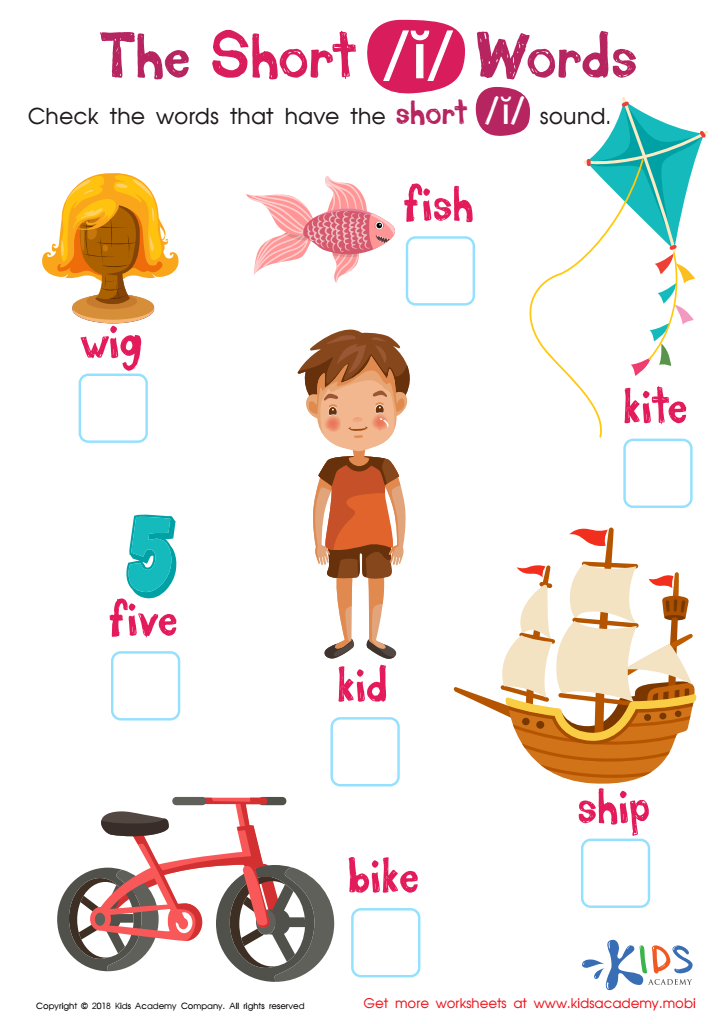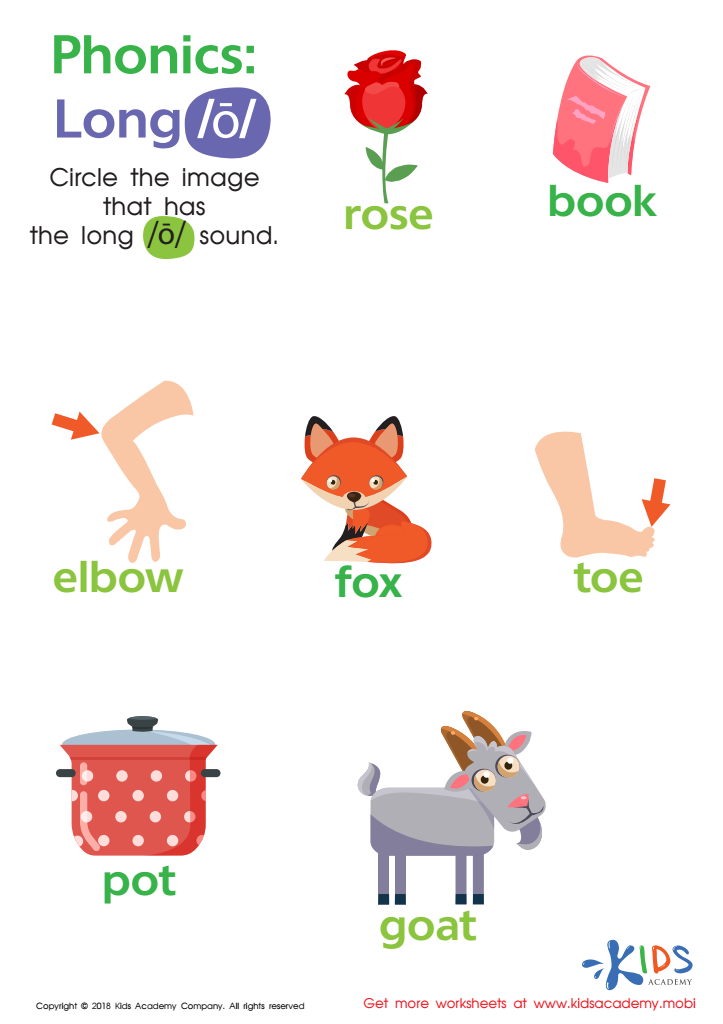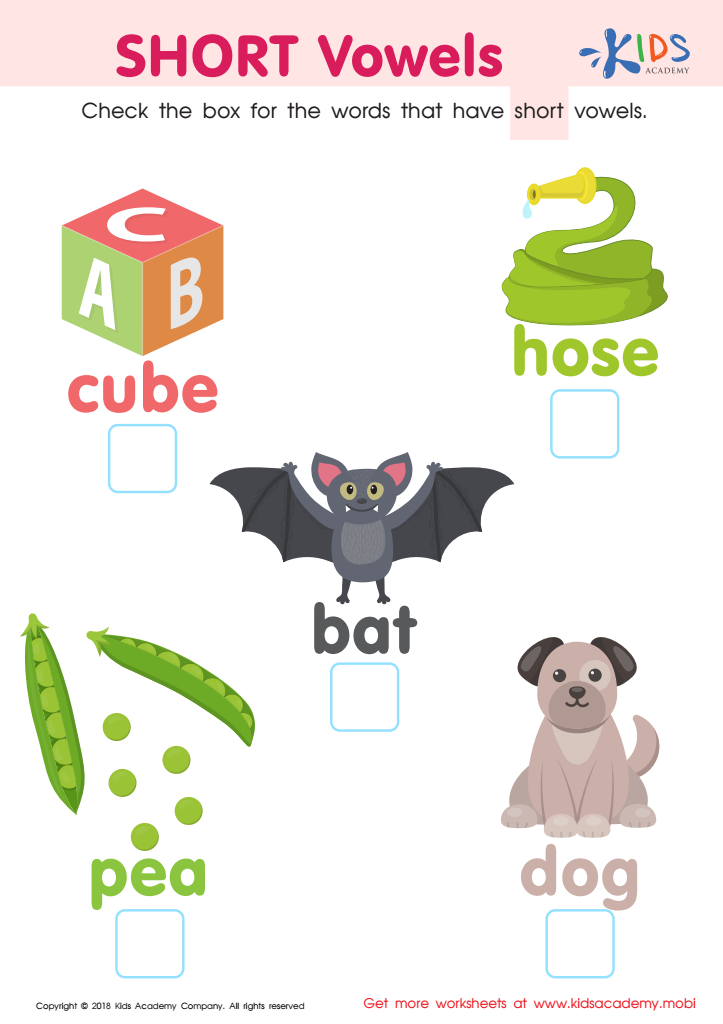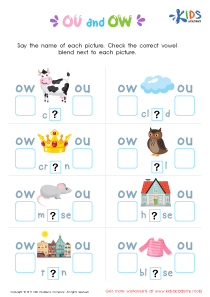Vocabulary enhancement Normal Long And Short Vowel Worksheets for Ages 4-6
4 filtered results
-
From - To
Boost your child's vocabulary with our engaging Normal Long and Short Vowel Worksheets, specially designed for ages 4-6. These interactive and fun-filled activities focus on enhancing language skills by emphasizing the differentiation between long and short vowel sounds. Children will enjoy tracing letters, completing phonics exercises, and coloring images that reinforce their understanding of each vowel sound. Perfect for preschool and early grade settings, these worksheets promote literacy development while ensuring a joyful learning experience. Help your little ones build a strong foundation in vocabulary with our user-friendly, effective resources tailored to young learners! Download now and watch them shine!


Let's Check Long Vowels: Assessment Worksheet


The Short I Words Reading Worksheet


Phonics Long O Reading Worksheet


short vowels Worksheet
Vocabulary enhancement, particularly through the understanding of short and long vowels, is critical for children ages 4-6 as it forms the foundation for reading and communication skills. During this developmental stage, children are rapidly acquiring language abilities and begin to decode words. Knowing the difference between short and long vowels helps them recognize and pronounce new words correctly, ultimately boosting their reading confidence.
For parents and teachers, fostering vocabulary through vowel education not only enhances literacy skills but also encourages verbal expression. A strong vocabulary aids in comprehension and critical thinking, allowing children to articulate their thoughts and ideas more effectively. Engaging them with fun activities like rhymes, songs, or games focused on short and long vowel sounds can make learning enjoyable and memorable.
Moreover, enhancing vocabulary expands a child's world, allowing brief interactions and discussions about diverse topics that pique their interest. Parents and educators who actively support this process create a nurturing environment for language development. Ultimately, vocabulary enhancement leads to improved academic performance, better communication skills, and a lifelong love for learning—benefits that will serve children well beyond the classroom.

 Assign to My Students
Assign to My Students
















